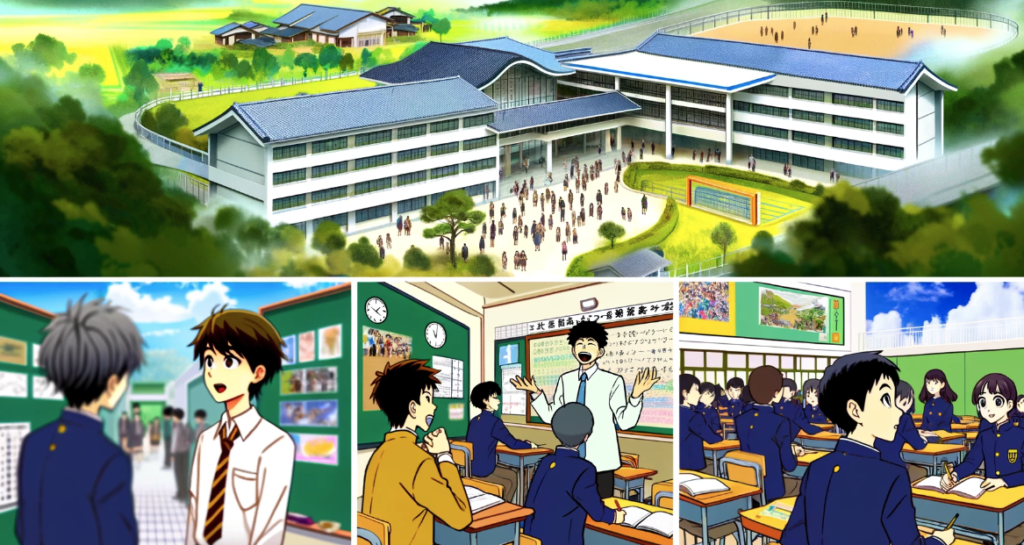
Lesson 9. Education System
Topic Question: Can you explain the Japanese education system?
No. 1
First, try answering the question yourself.
The instructor will provide advice on vocabulary, grammar, and expression corrections.
Sample Answer – Let’s read aloud – The instructor will check your pronunciation and accent.
The Japanese education system is structured in a 6-3-3-4 pattern: six years of elementary school, three years of junior high school, three years of senior high school, and four years at a university or two years at a junior college. Education is compulsory up to junior high school. The system emphasizes uniformity and collective participation, with entrance exams for high schools and universities playing a critical role in determining students’ educational pathways. Additionally, moral education and extracurricular activities are highly valued, aiming to develop well-rounded individuals.
No. 2
5 Words to Learn and Their Meanings – Pronounce the Words Correctly (Pronunciation Training) + Make Sentences Using the Words Instantly
- Compulsory (義務的な): Required by law or a rule; obligatory.
Voting is compulsory in some countries to ensure high participation rates.
- Uniformity (統一性): The quality or state of being uniform; sameness.
The uniformity of educational standards across the country ensures that all students receive a similar quality of education.
- Collective (集団の): Done by people acting as a group.
The project was a collective effort, with every team member contributing valuable ideas.
- Extracurricular (課外の): Activities pursued in addition to the normal course of study.
Participating in extracurricular activities can enhance students’ learning experience and social skills.
- Well-rounded (バランスの取れた): Having a personality that is fully developed in all aspects.
A well-rounded education includes not only academic studies but also arts and sports.
No. 3
3 Key Phrases and Example Sentences
- Entrance exams (入学試験)
Many students attend cram schools to prepare for the challenging entrance exams for prestigious universities.
- Moral education (道徳教育)
Moral education in schools teaches students about ethics, responsibility, and societal values.
- Educational pathways (教育の道)
Students often face difficult decisions when choosing their educational pathways after junior high school.
No. 4
Discussion and Exchange of Opinions on the Sample Answer
Instructor: How do you think the emphasis on entrance exams affects students’ education and personal development? Is there a similar system in your country?
Student: [Opinions of students]
No. 5
Free Discussion on the topic
Let’s discuss the role of education in shaping society. How does the educational system in Japan compare to that of other countries in terms of goals, challenges, and outcomes? What aspects of the Japanese education system could be adopted by other countries, and vice versa?







